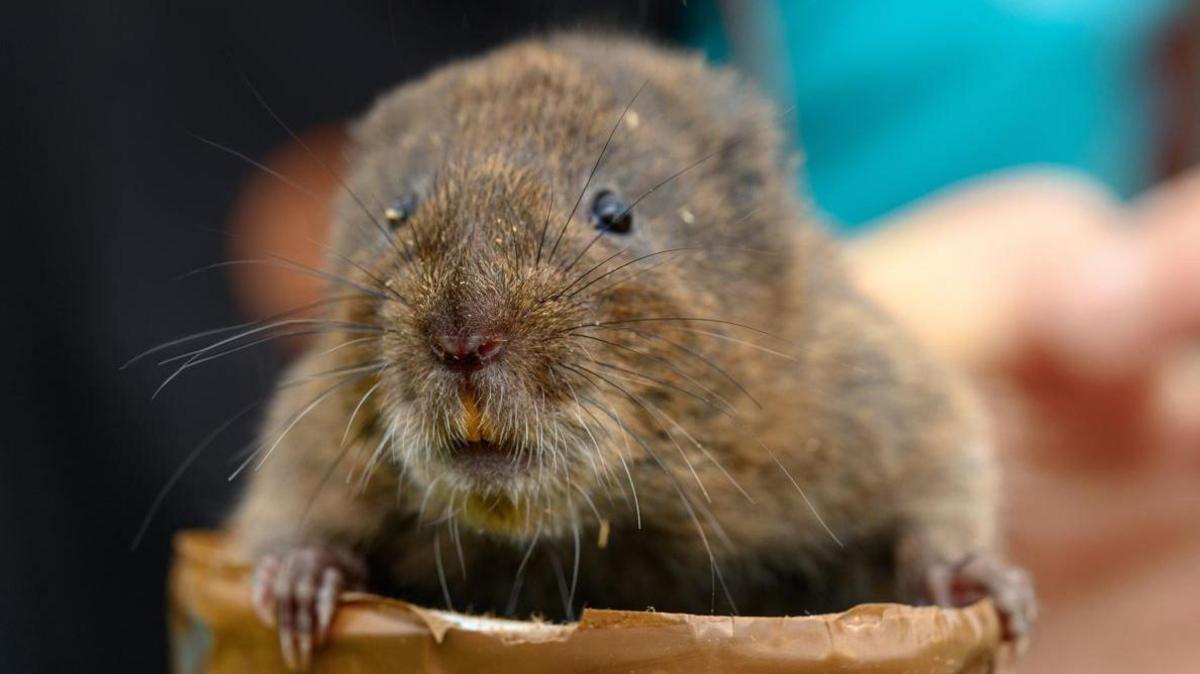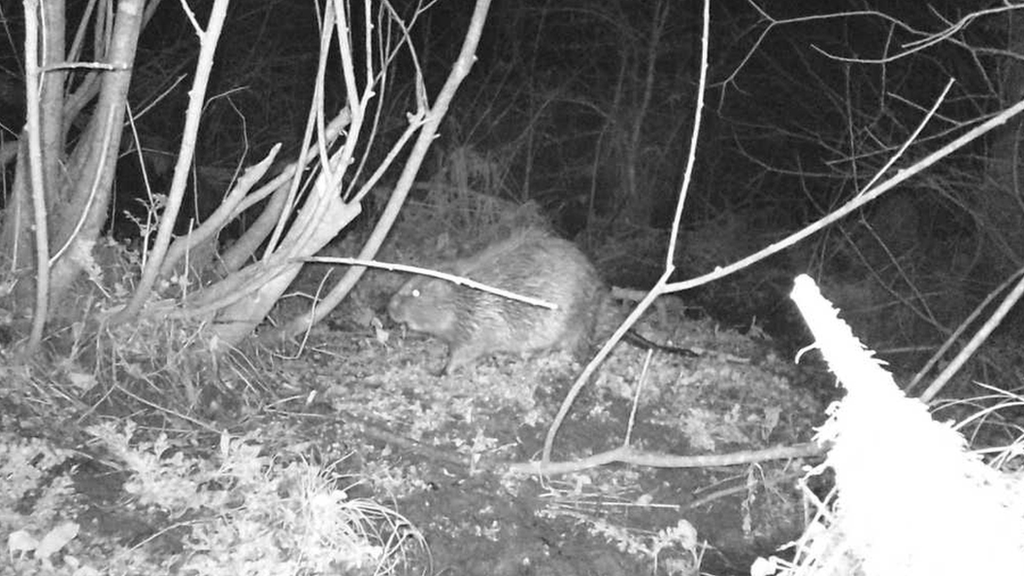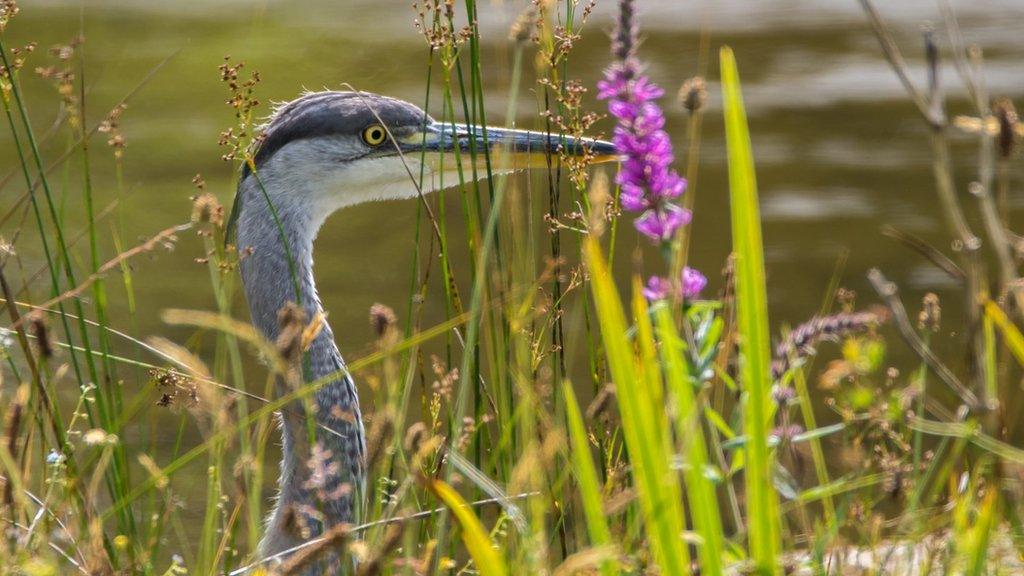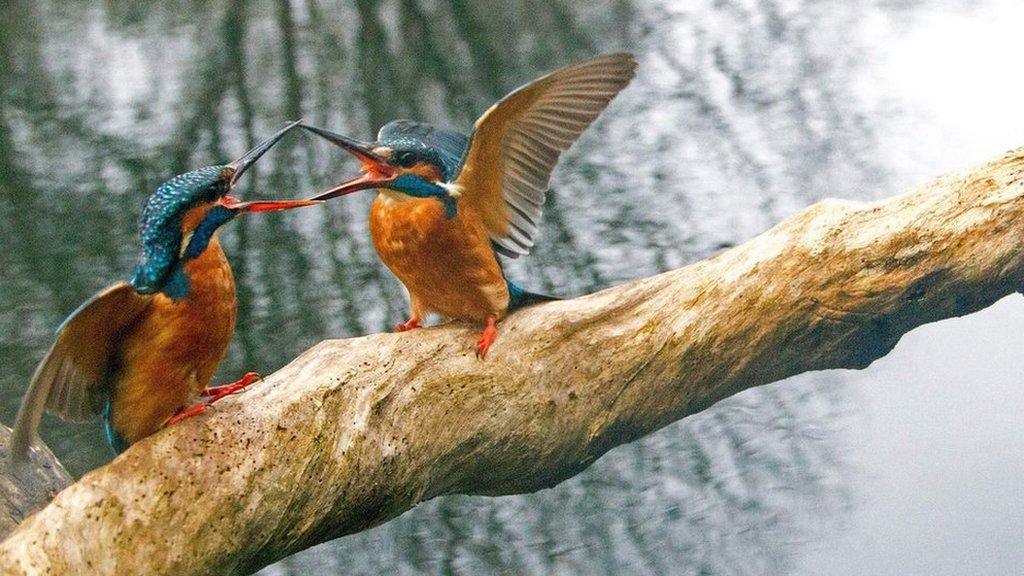Water voles released into wild to restore river

Eighty water voles were released into the River Fowey by the Duchy of Cornwall
- Published
Dozens of water voles have been released into the wild in Cornwall to help improve a wetland.
The Duchy of Cornwall said it released 80 water voles in the River Fowey at Restormel.
The rodents, which are the fastest-declining mammal in England, were declared extinct in the region in the 1990s, the duchy said.
It said larger and deeper pools created along the River Fowey through a nature programme since 2022 had made an ideal habitat for water voles.
'Shape the ecosystem'
Jeremy Clitherow, senior future farming advisor at the Duchy of Cornwall, said the reintroduction of water voles was an "important first step in restoring this ancient landscape".
"Water voles are important mini-ecosystem engineers," he said.
"Their existence impacts soil and plant biodiversity around their burrows and riverbanks.
"They move nutrients around, bringing some to the surface, improving soil health and helping plants to grow.
"Above ground, their eating habits can help shape the ecosystem - their grazing helps control vegetation growth, making room for wildflowers and other native grasses to grow around the water banks."
The duchy said 120 water voles were also released at The Lost Gardens of Heligan, near Mevagissey, recently.
Further releases are planned in spring next year, it added.
Follow BBC Cornwall on X (formerly Twitter), external, Facebook, external and Instagram, external. Send your story ideas to spotlight@bbc.co.uk, external.
- Published15 March 2024

- Published7 April 2024

- Published19 March 2024
